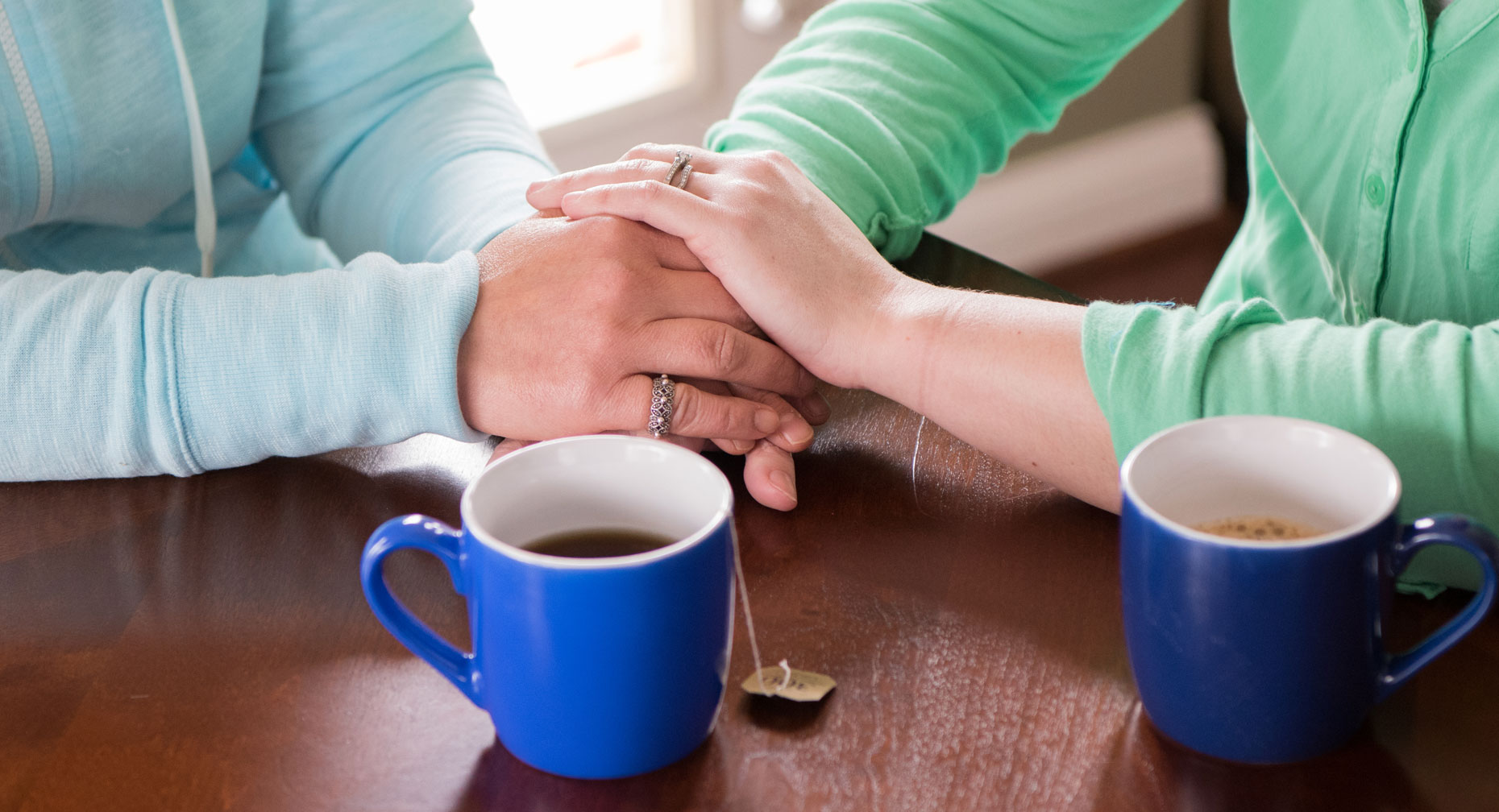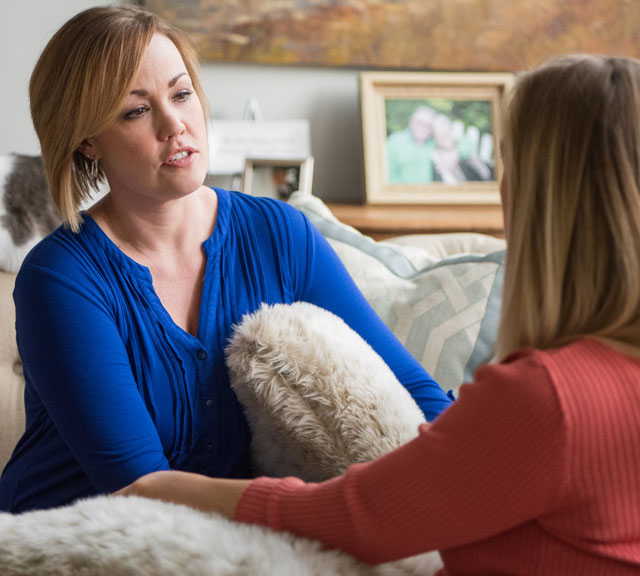Recognizing Domestic Abuse and How to Get Help

Answer a few questions and we'll provide you with a list of primary care providers that best fit your needs.
Domestic abuse is violence or abuse that takes place at the hands of family members or intimate partners. It can happen to anyone, regardless of age, race, gender or financial status. Domestic abuse victims (and abusers) can include spouses, ex-spouses, girlfriends, boyfriends, dates, children, the elderly — nearly anyone who shares a living arrangement or a close relationship with others. According to the Centers for Disease Control, about 3 in 10 women and 1 in 10 men in the U.S. have reported rape, physical violence or stalking by a family member or intimate partner.
Kinds of Abuse
The types of domestic violence can range from verbal and emotional abuse to causing direct bodily harm. It may begin with name-calling, verbal threats and bullying, and can escalate to shoving, slapping and severe, life-threatening physical violence, including battering and the use of weapons.
Marnie Masten, MS, LPCC, LSW, program director at Samaritan Behavioral Health CrisisCare, says the motivation for domestic abuse often comes down to the issue of control. "Whether it's physical abuse, emotional abuse, or verbal abuse, it's any kind of action by a significant person in someone's life who is trying to establish or maintain power and control over the other person."
"You are a worthy person, and you deserve to have a healthy, happy relationship.”
Domestic abuse can be:
- Psychological or emotional. An emotional abuser may humiliate his partner, verbally attack, blame the partner for everything that goes wrong, and intimidate or threaten the partner or the children. The abuser may go to great lengths to control the partner's time, activities and access to others, and may interfere with other relationships, including friends and family.
- Economic. The abuser may insist upon managing the victim's finances — another means of maintaining control of the partner — and limit access to the victim's resources related to transportation, food, clothing and other essentials.
- Physical. Physical abuse includes beating, striking, choking — any variety of bodily attack — and can lead to anything from bruising, broken bones and internal injuries to death.
- Sexual. This can include rape or other forced sexual activity.
- Stalking. This kind of harassing, threatening behavior can also lead to physical or sexual abuse.
It's important to recognize that a partner can show signs of abusive tendencies before violent incidents occur, and these can be clues to a potential problem ahead. For instance, your partner may:
- Have a known history of violence, or fighting or using force to solve problems
- Abuse alcohol or drugs
- Be overly jealous — for instance, demanding to know where you are at all times or making it difficult for you to keep a job or visit your friends
- Exhibit extreme emotional highs and lows
- Display anger or rage that frightens you
Abuse often comes in a cyclical pattern, says Masten: "After the first incident of abuse occurs, the abuser may show some remorse for what they've done and they'll promise that it won't happen again. The victim wants to believe that, and for a while things may get better. Then the next incident occurs, and the cycle repeats: things get better until the next instance of abuse. Over time, the periods between incidents of abuse get shorter and shorter."
Spotting a Friend in Trouble

Is it possible to tell when a friend might be suffering the effects of domestic abuse? And if you believe a friend is being abused, what should you do?
"It can be hard to spot signs of physical abuse," Masten says. "Many aggressors who inflict such abuse know how to do it in way that's not going to be obvious." And abuse victims themselves will sometimes dress or apply makeup to hide signs of abuse, such as bruises or abrasions. But, Masten says, even in the absence of obvious physical harm, there can sometimes be other telltale signs that might be cause for concern. These can include:
- An unusual amount of anxiousness, with your friend perhaps stealing frequent glances as her phone or watch, as if worrying about getting home on time
- Complaints about being depressed or not sleeping well
- A significant change in weight, whether gained or lost
- A noted personality change, as in becoming more withdrawn
Masten says that if you suspect a friend is a victim of abuse, as difficult as it might be, you should find a way to broach the subject, for her own good. "Personally," Masten says, "I would ask. If you really are friends, sometimes you have to ask the hard questions." There are ways to approach the conversation that might make it easier. For instance, simply mentioning the changes you've noticed and voicing your concern, and your desire to help, might be enough to persuade your friend to talk with you about her problem.
Getting Help
Sometimes it can be difficult for victims to see their own situation clearly, but recognizing that you are in an abusive situation is the first step toward a better future. "In order to get help," says Masten, "abuse victims have to be ready to make that change in their lives, to have the courage to leave the relationship and reach out to ask for help. If they call our offices, we'll invite them to come in or, if they prefer, we'll visit them in the community with a mobile crisis response."
If you suspect a friend is being abused, it's important to be supportive. If possible, you can do some research for your friend to help educate and guide her through the process of getting assistance. You may even help her get to a shelter or help gather the funds she needs to leave her situation. Sometimes, Masten says, it may also come down to helping your friend by getting the authorities involved, particularly if the friend or her children are in imminent danger of physical harm.
Where to reach out:
- Call Samaritan Behavioral Health CrisisCare: 937-224-4646.
- Contact Dayton's Artemis Center: 937-461-HELP(4357).
- Contact the National Domestic Violence Hotline: 1-800-799-7233.
- If you’ve been threatened with harm or death, or are being stalked, call 911 or the police.
Whatever your situation, Masten says it's important to remember that there is help available, and there is hope. "You can reach out and get yourself out of that situation and find some freedom and peace in your life," she says. "You are a worthy person, and you deserve to have a healthy, happy relationship.”
Answer a few questions and we'll provide you with a list of primary care providers that best fit your needs.
Source: Marnie Masten, MS, LPCC, LSW, Program Director, Samaritan Behavioral Health CrisisCare; Domestic Violence, , 9/7/2015; 1/1/2017; Recognizing Domestic Violence, 12/1/201




.tmb-card-head.webp?sfvrsn=680c0961_9)
